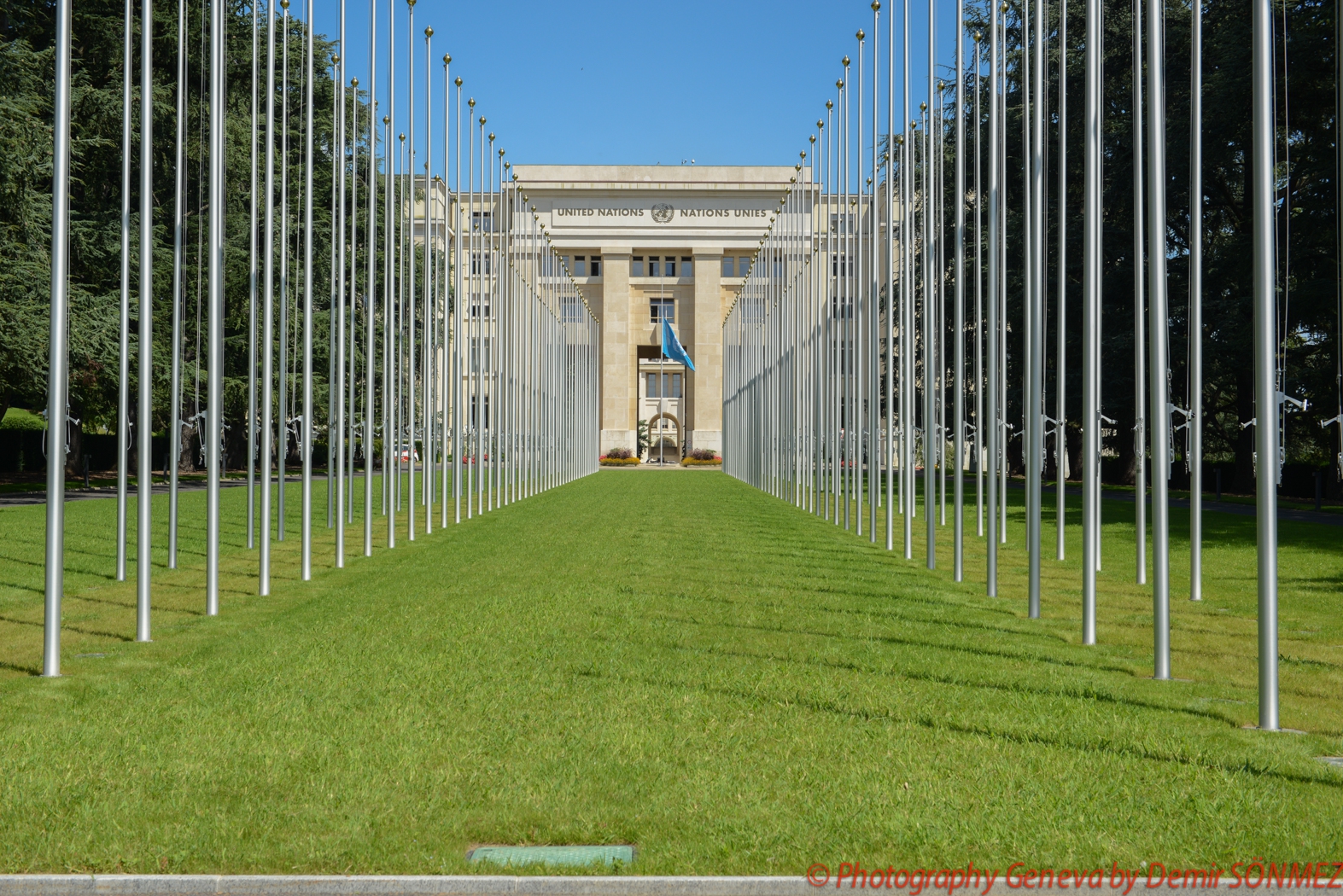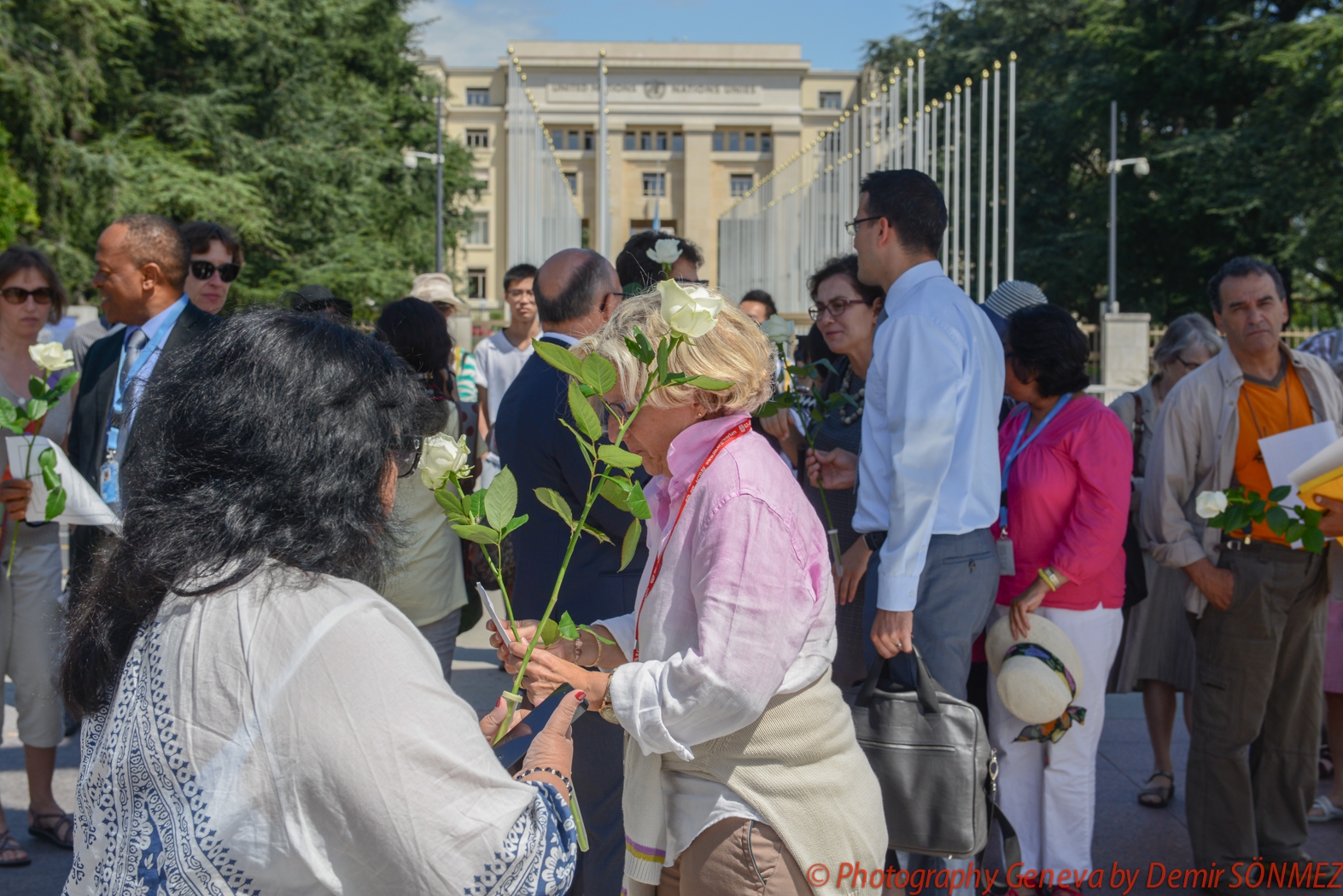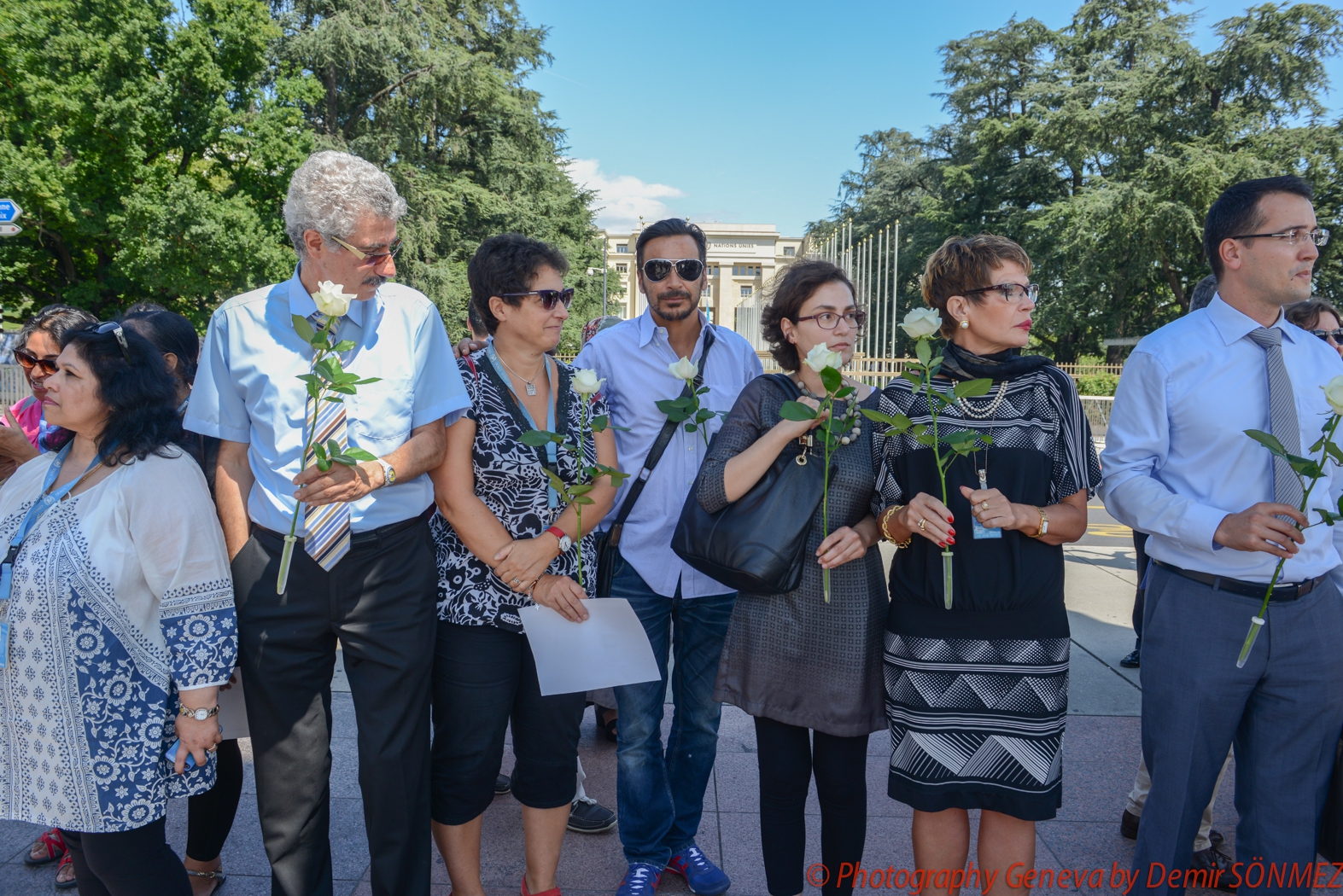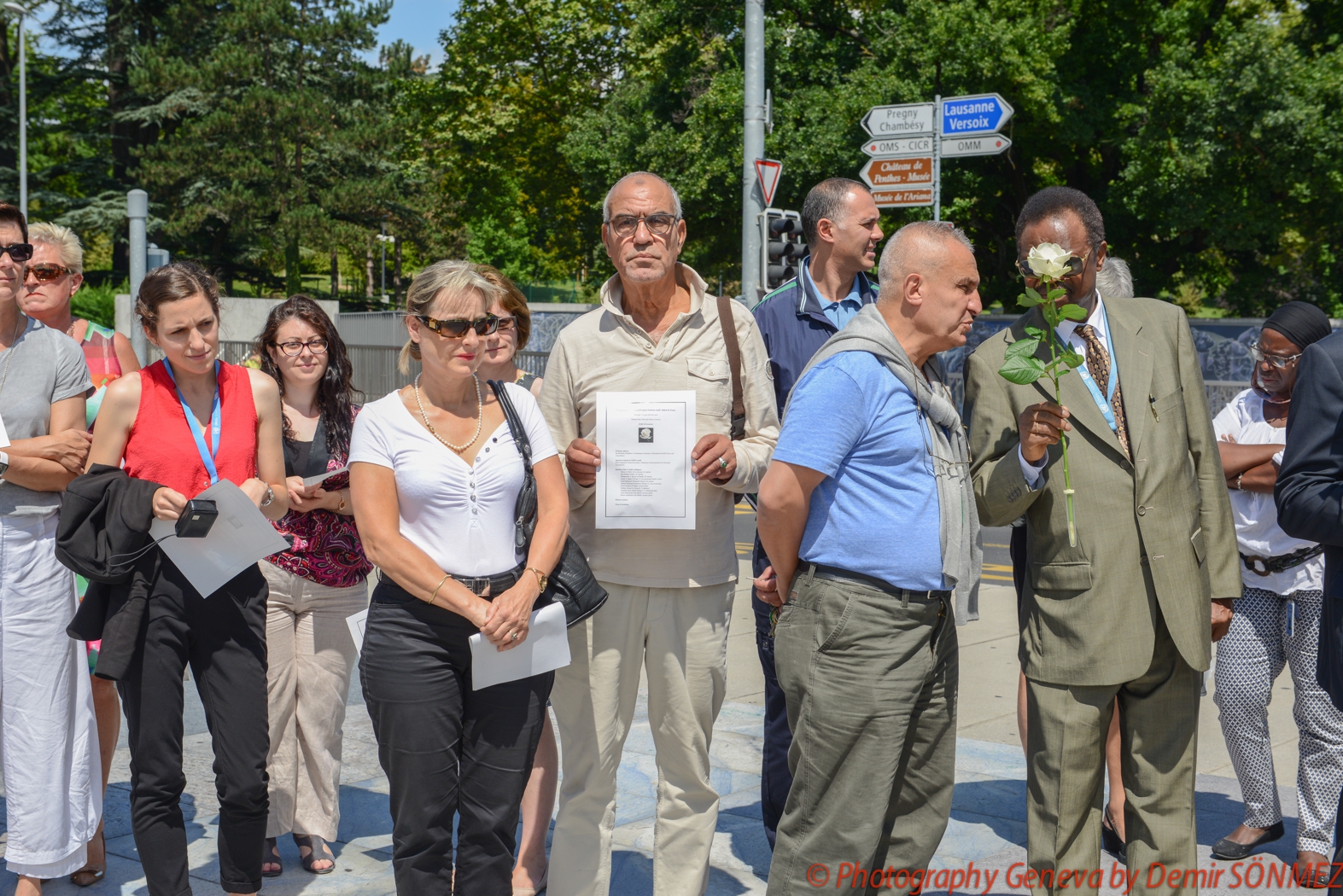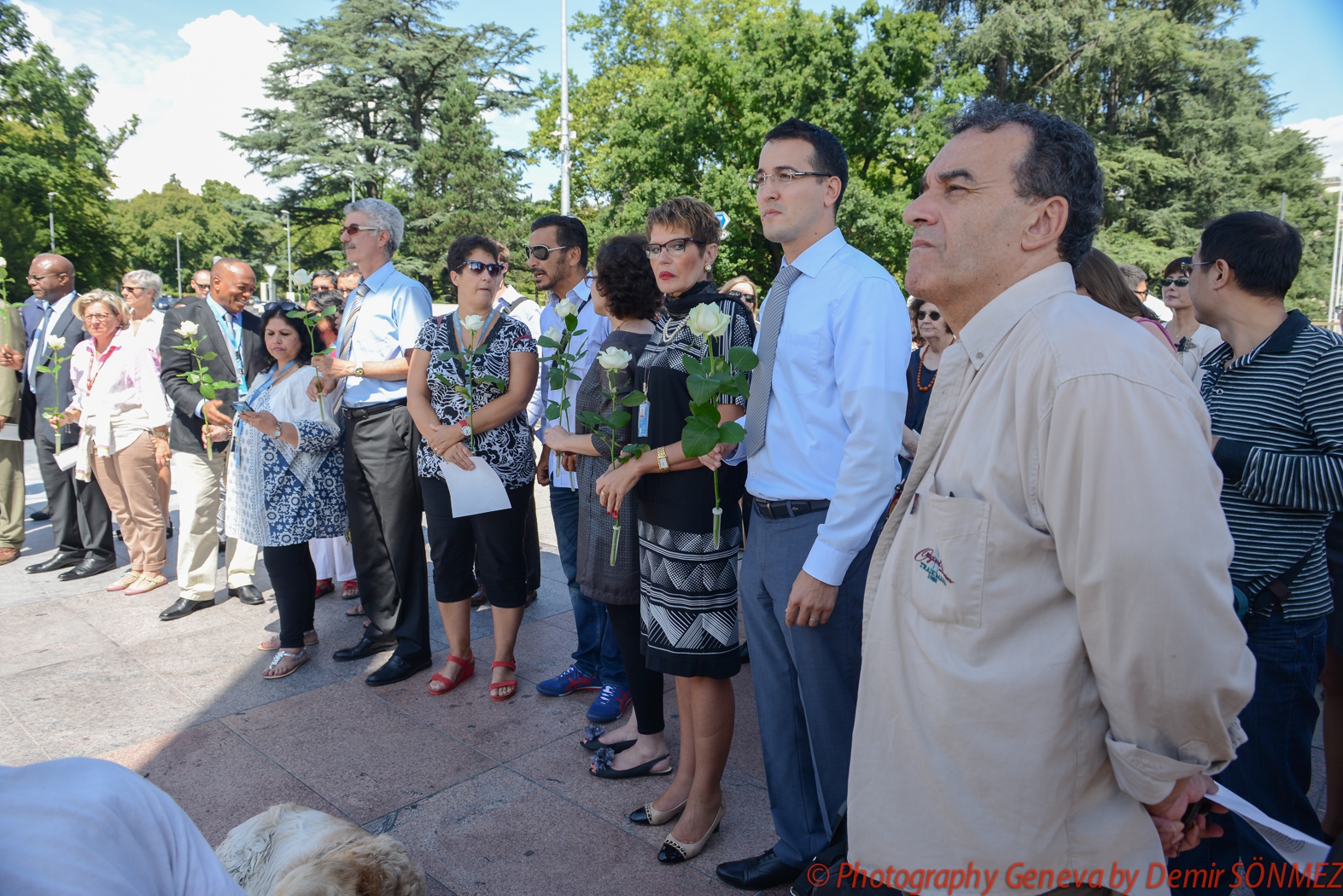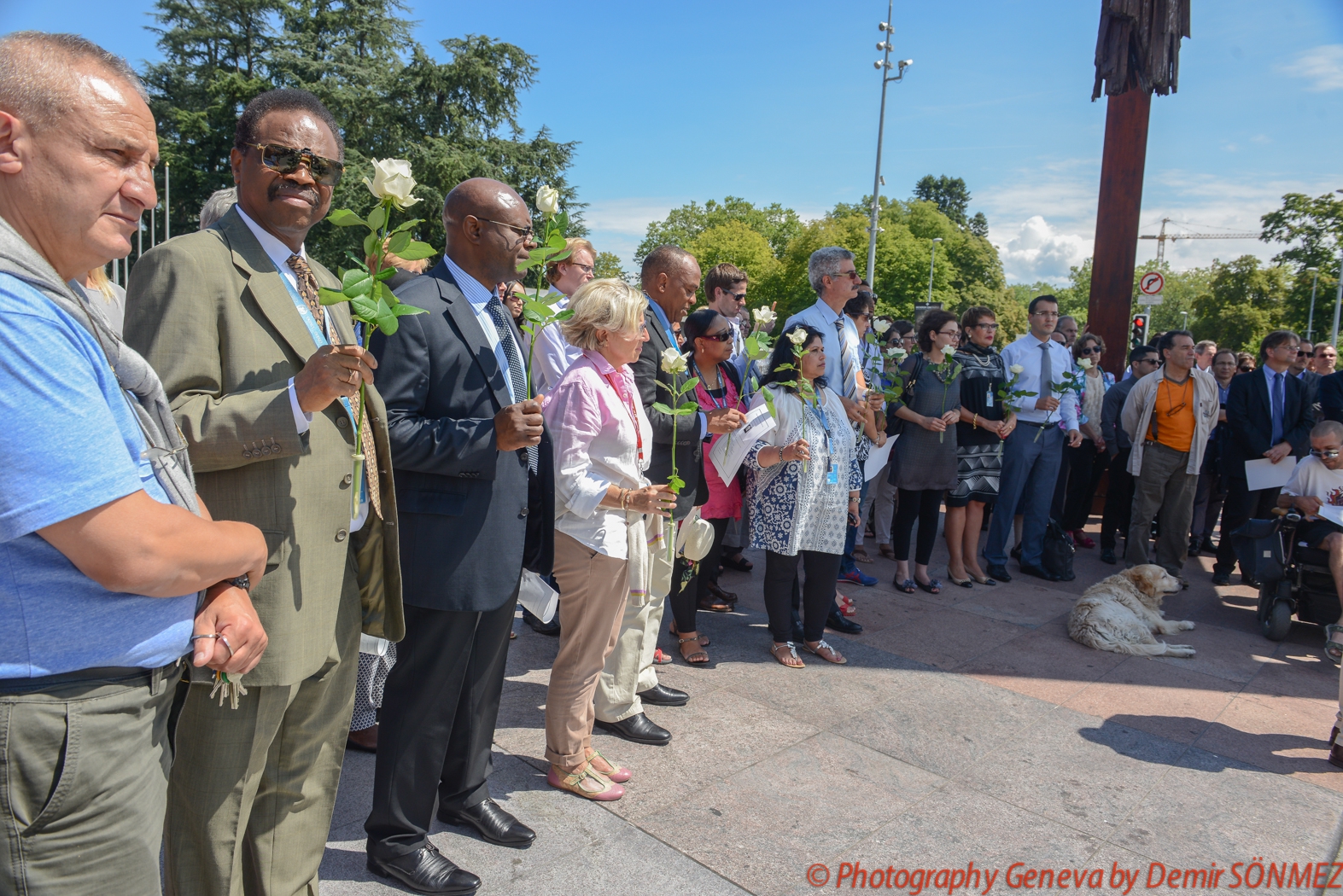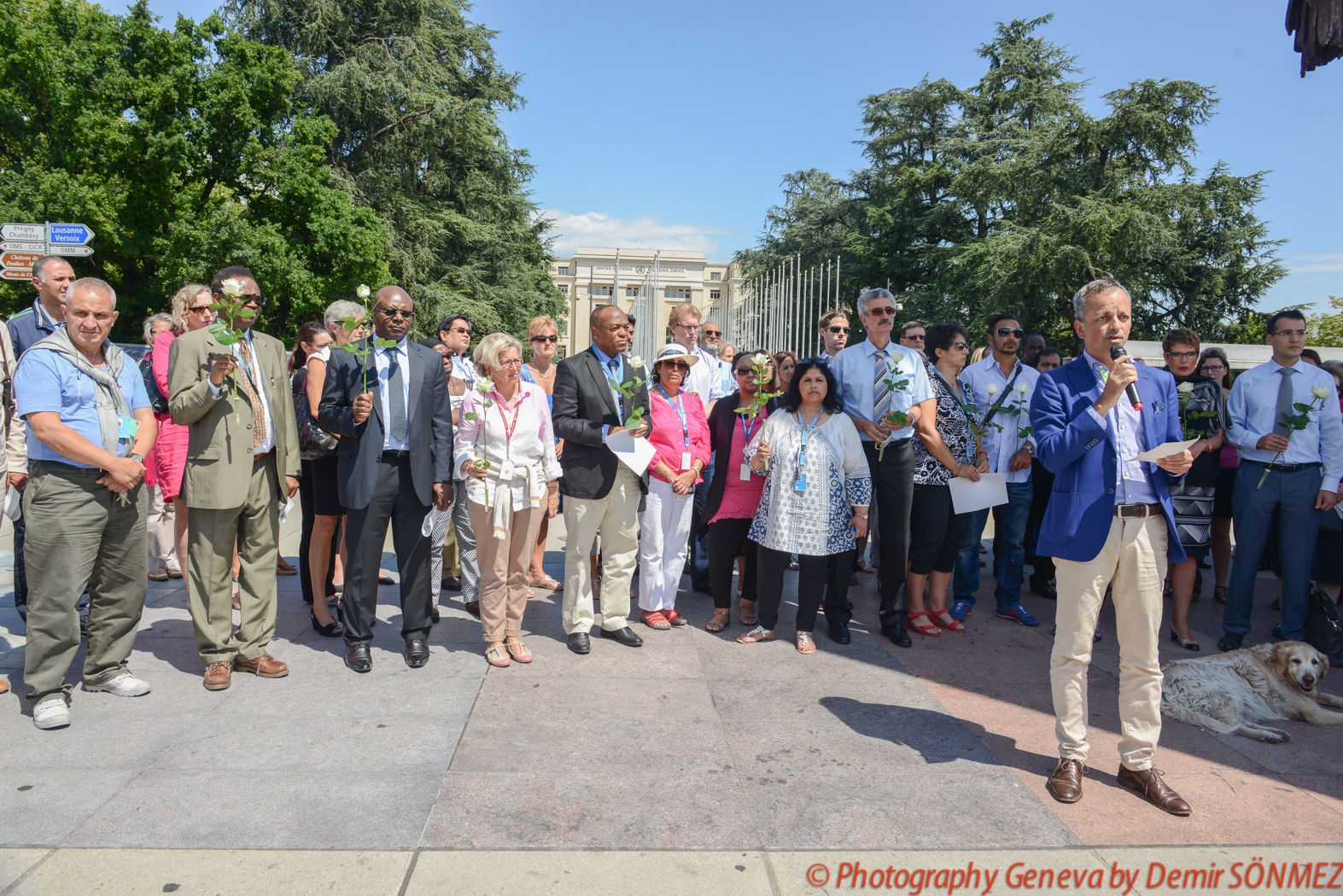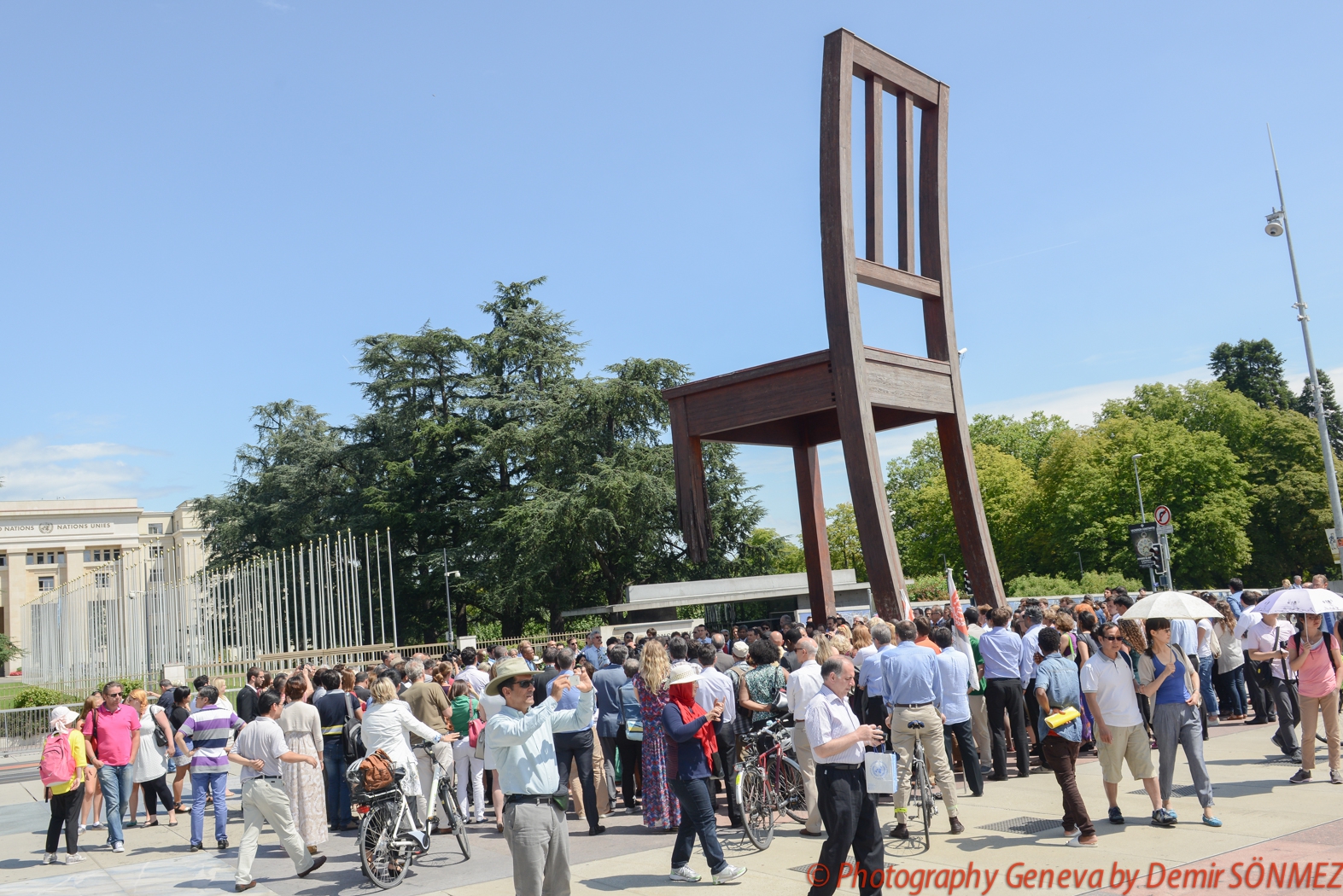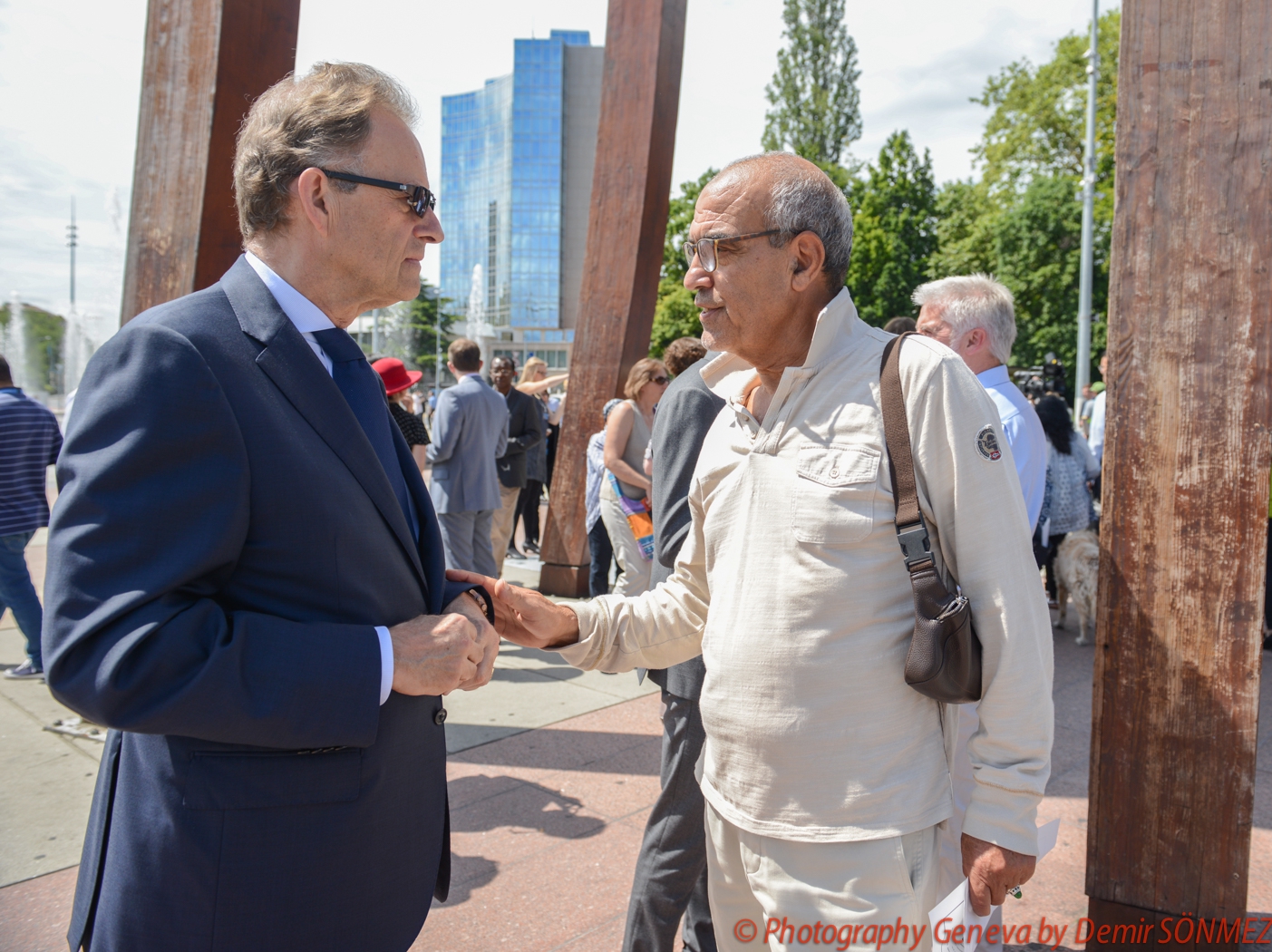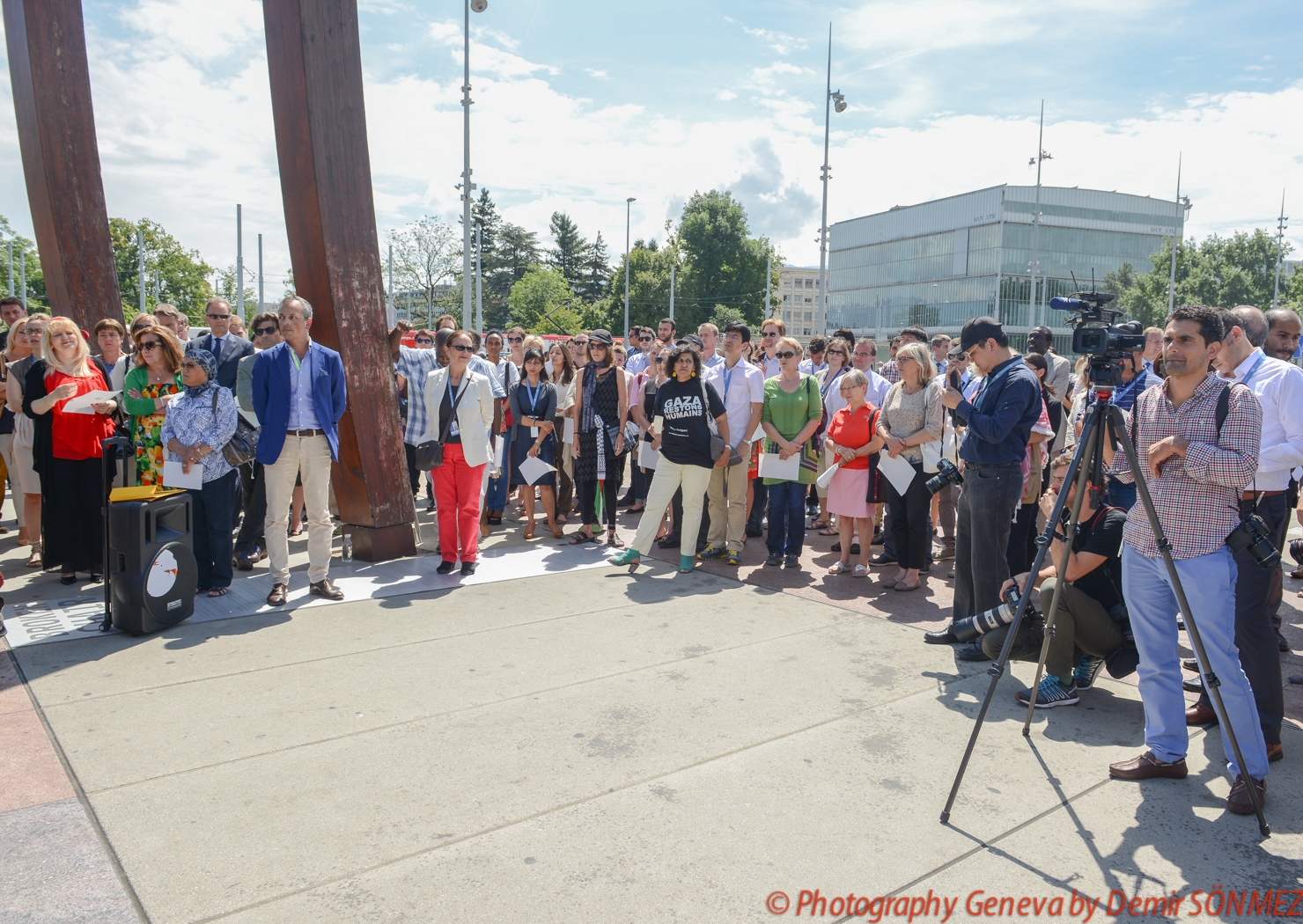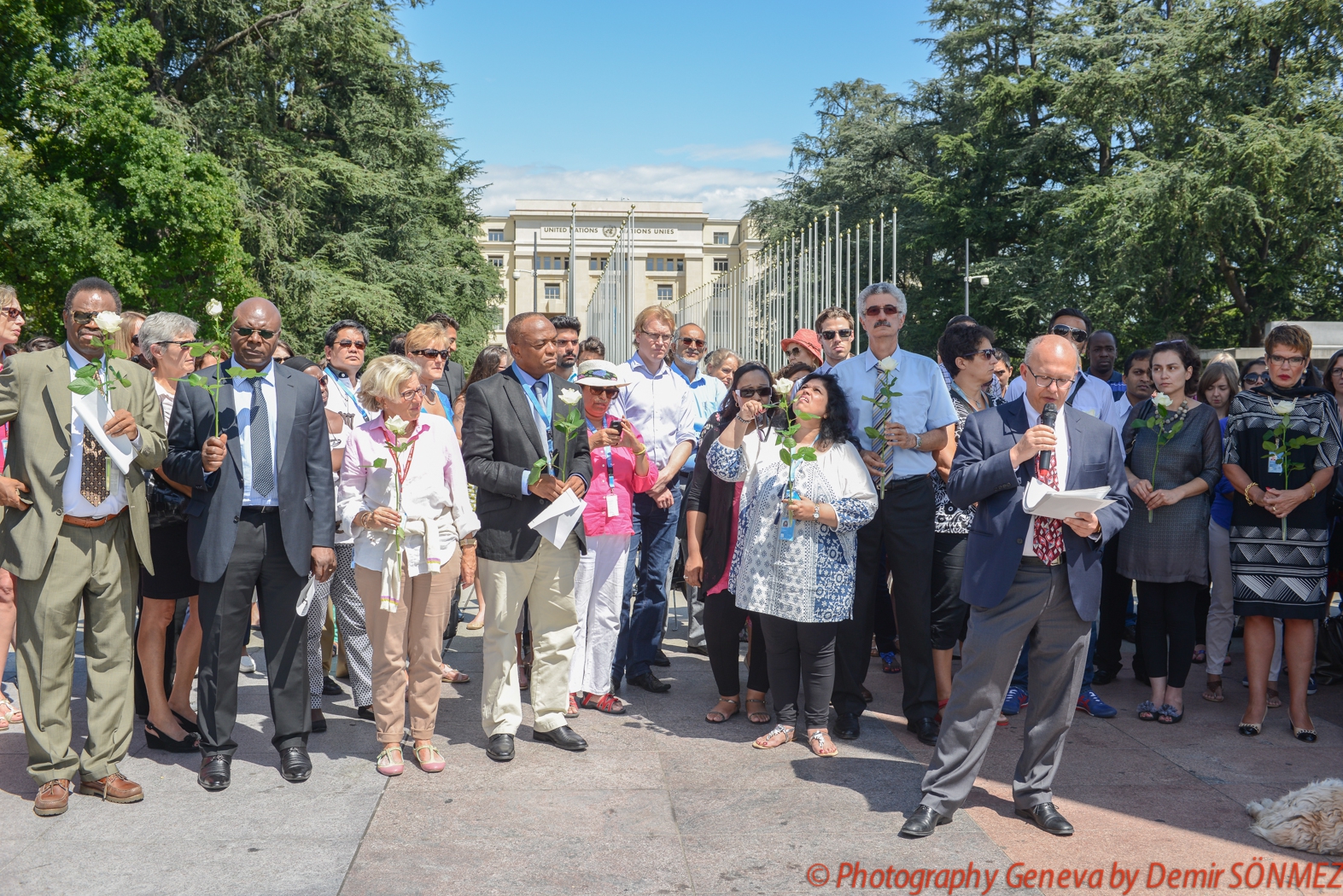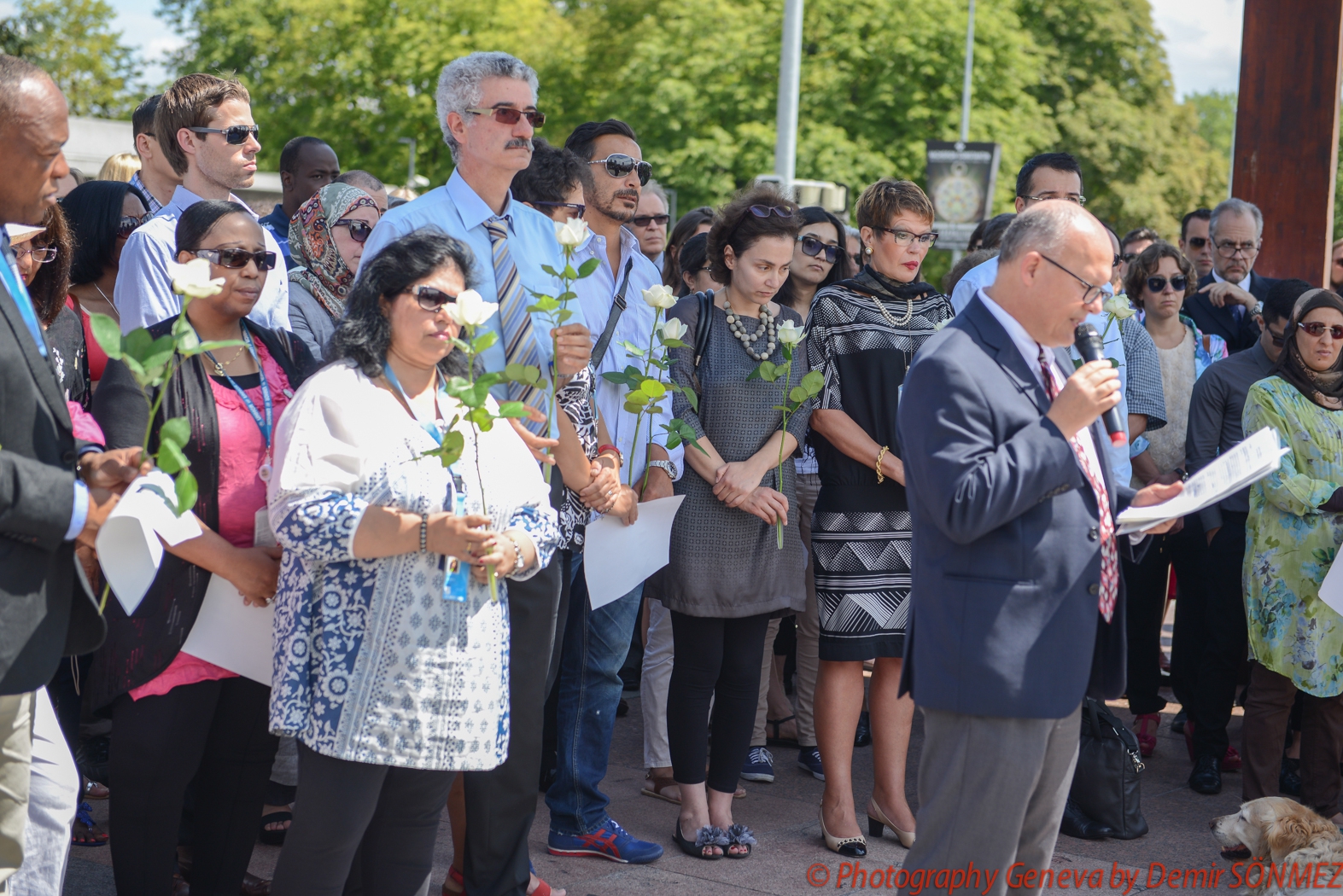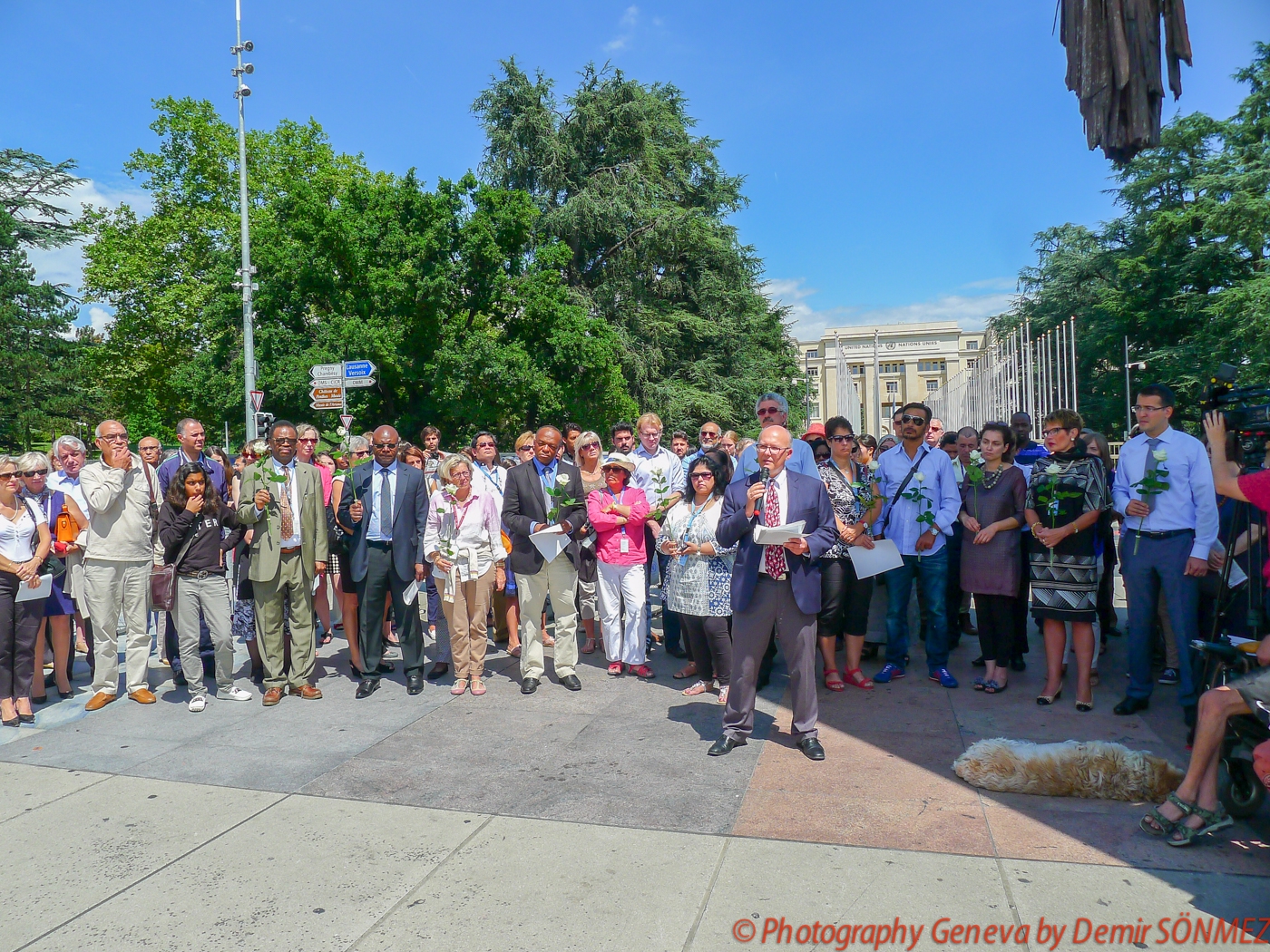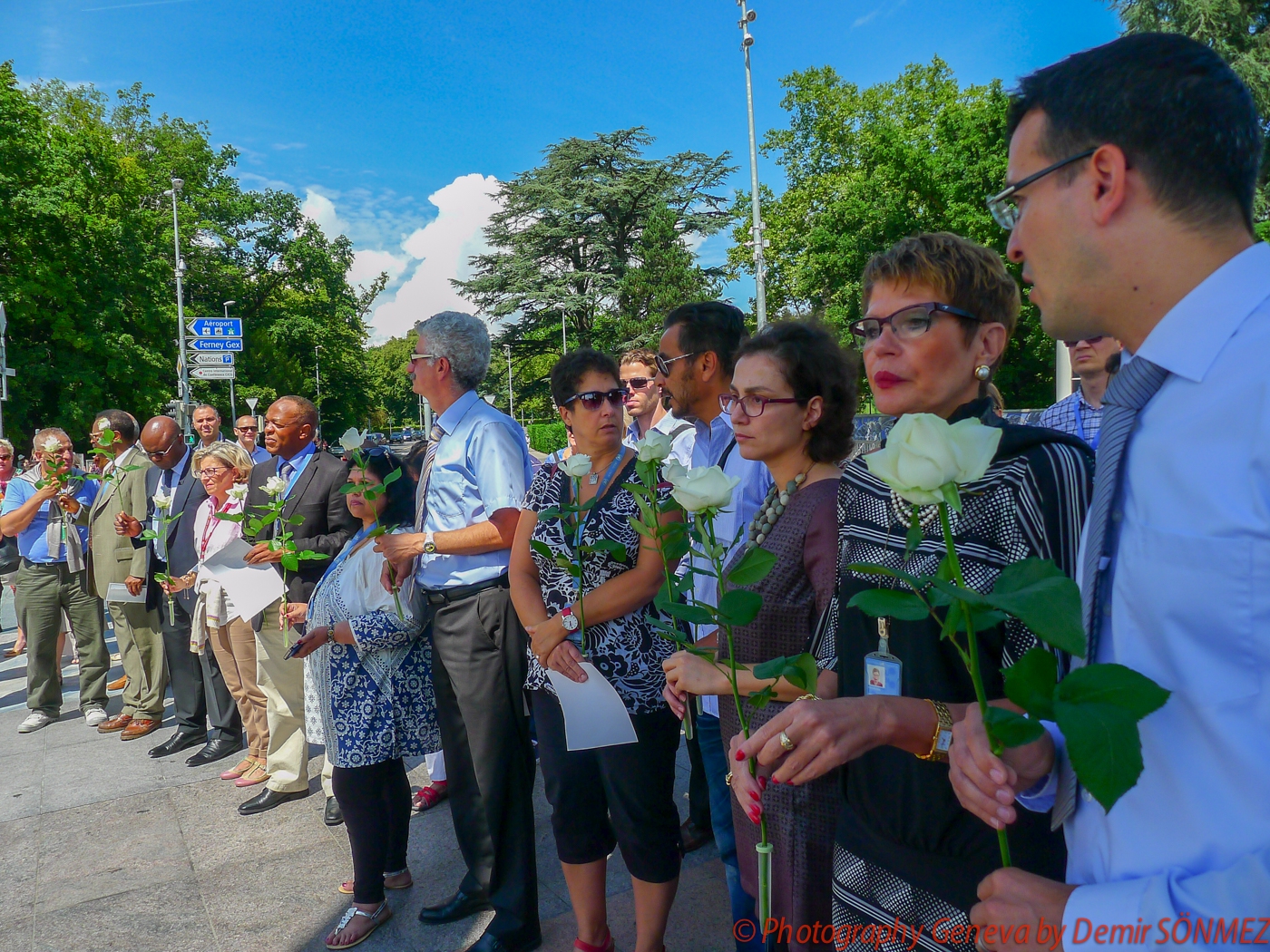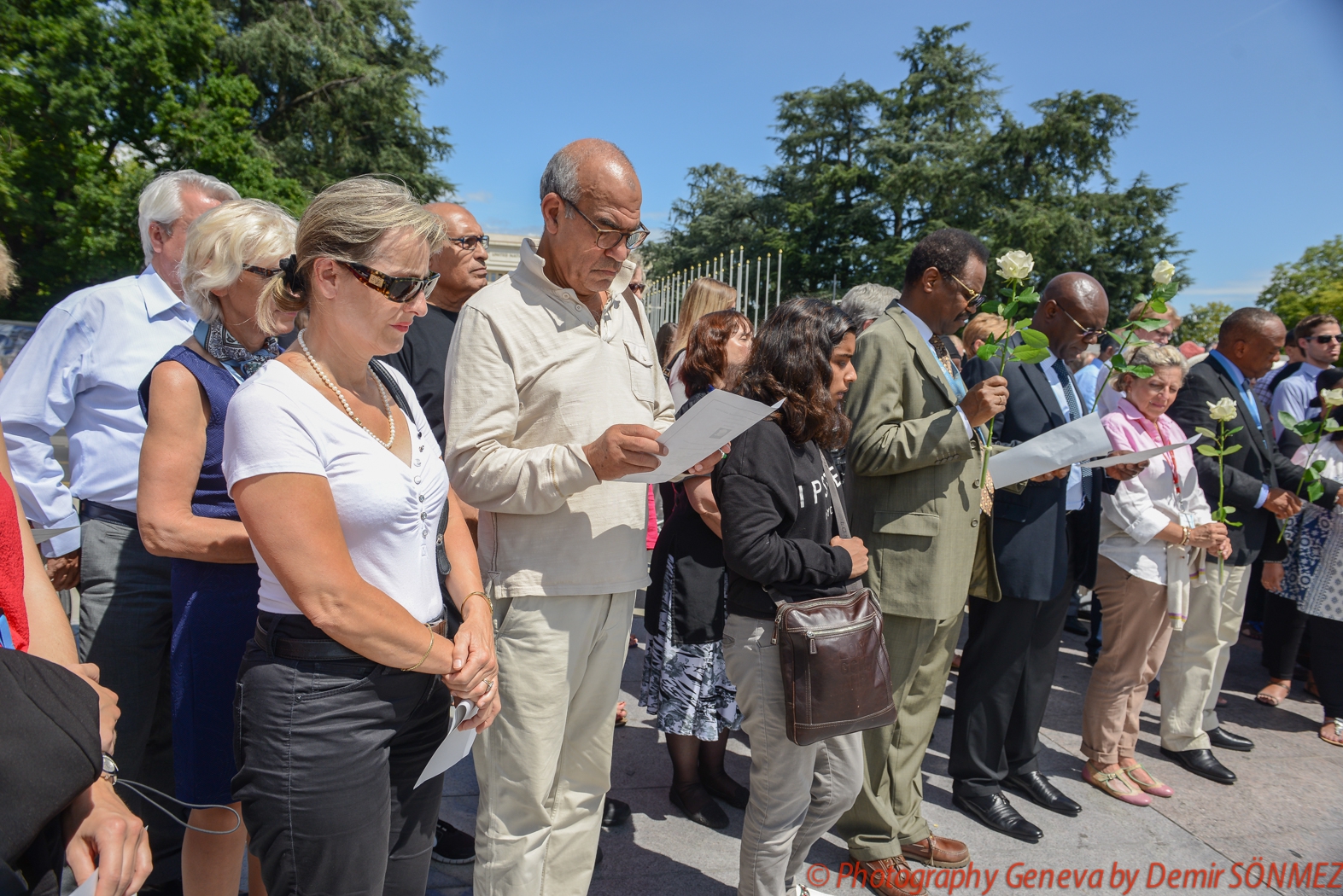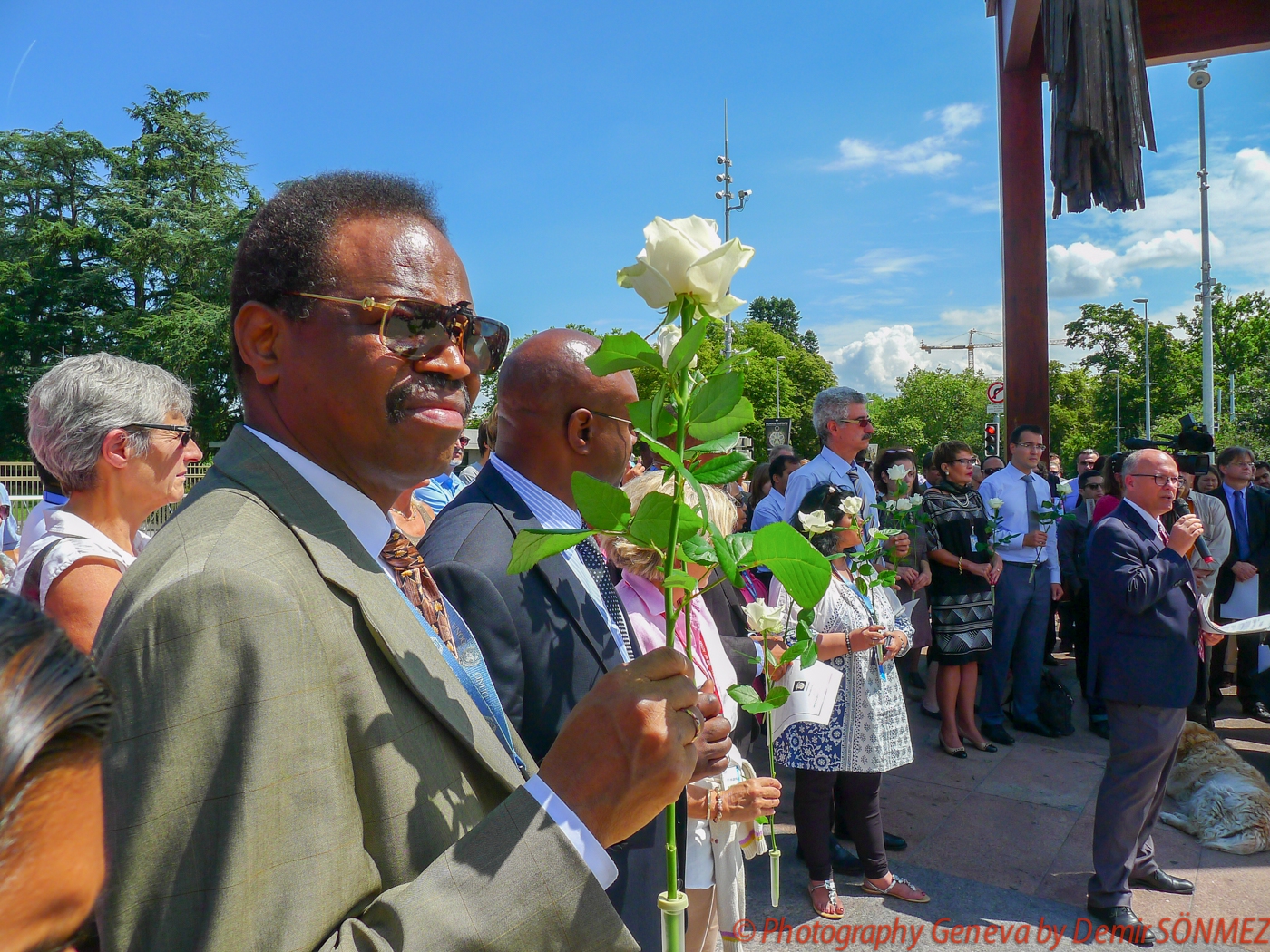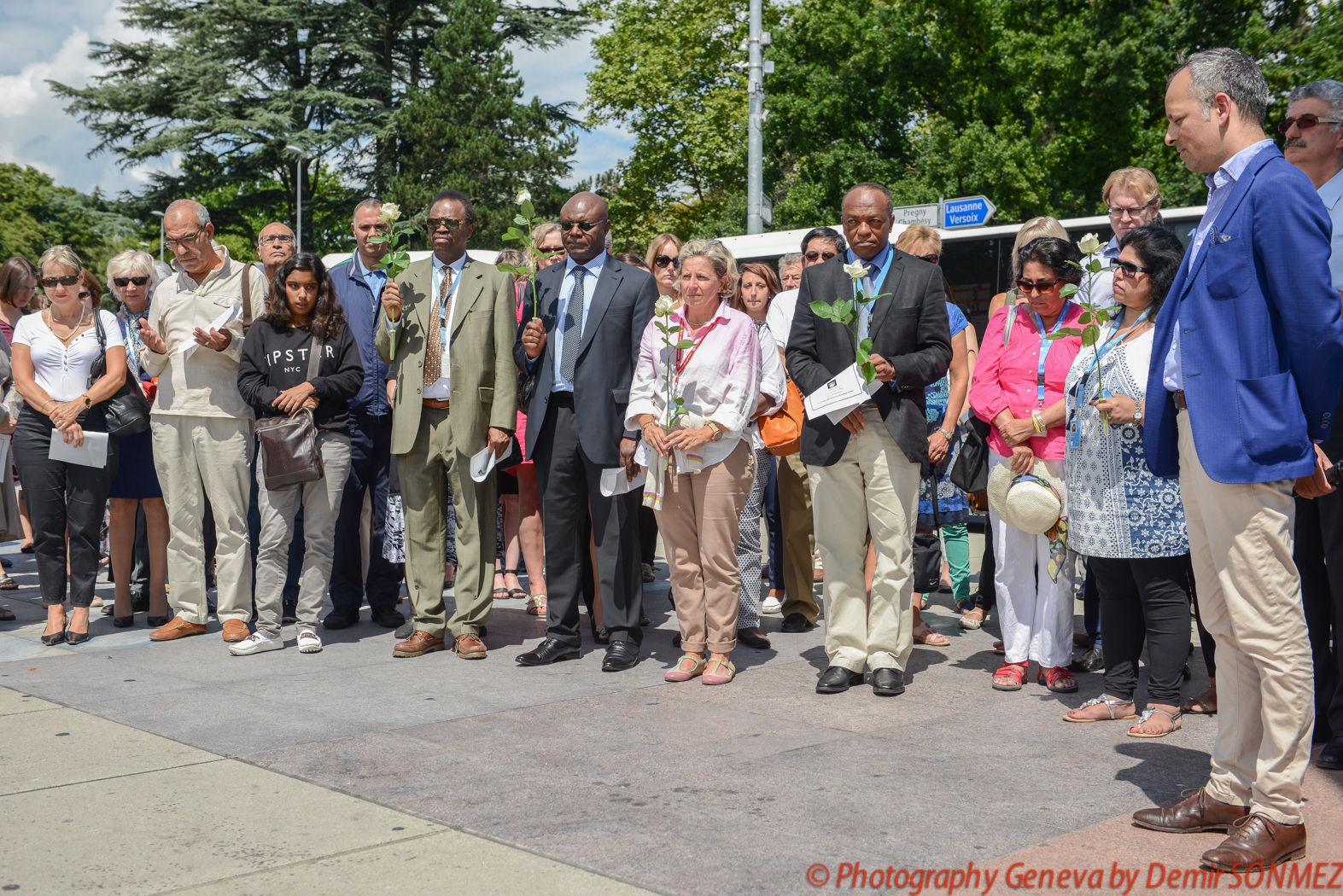Plus 300 fonctionnaires des Nations Unies se sont réunis aujourd'hui sur la place des Nations Unies à Genève pour célébrer une cérémonie en l'honneur des 11 fonctionnaires (Fatma A. Rahim Abu Amouna, 54, teacher, Inas Shaban Derbas, 30, teacher, Mohammed A. Raouf Al-Dadda, 39, teacher, Ismail A. Qader El-Kujk, 53, environmental health worker, Farid Mohamed Mohamed Ahmed, 50, teacher,Ahmed Mohamed Mohamed Ahmed, 51, school principal, Munir Ibrahim El Hajjar, social worker, Medhat Ahmed Al Amoudi, 53, labourer, Abdallah Naser Khalil Fahajan, 21, school attendant, Adel Mohammad Abu Qamar, security guard et Hazim Abdelbasit Abu Hellal, security guard.) qui ont été tué à Gaza.
11 d'entre eux portaient des roses blanches pour chacun(e) des fonctionnaires tués lors des bombardements.
Un jugement a été demandé pour ces crimes contre des humanitaires mais aussi contre la population civile de Gaza.
La cérémonie pleine de dignité c'est achevée avec la lecture des noms des fonctionnaires tués et une minute silence en présence du Directeur général des Nations Unies en poste à Genève.
Speech made on 7 August 2014 at the Place des nations, Geneva by the FICSA General Secretary (Brett Fitzgerald)
Dear Colleagues,
As General Secretary of FICSA, a federation of many UN system staff associations, and to which the UNRWA Area Staff Association belongs, I have been asked to address you today.
UNRWA, which stands for the United Nations Relief and Works Agency, was established by the United Nations General Assembly following the 1948 Arab-Israeli conflict. It’s mandate is to carry out direct relief and works programmes for Palestine refugees, and the services it provides include: education; health care; relief and social services; camp infrastructure and improvement; microfinance and emergency assistance, including in time of armed conflict such as the present situation in Gaza. Today some 5 million Palestine refugees are eligible for UNRWA services. UNRWA has more than 30,000 personnel working across five areas of operations with their field offices being located in the Gaza Strip, the West Bank, Syria, Lebanon and Jordan.
For some of us who are living here in the relatively peaceful city of Geneva and going to our nice offices every day, it can be difficult to imagine what the lives of some of our UNRWA colleagues are like. Despite the hardships which some of them encounter on a nearly daily basis, these colleagues, instead of choosing the path of anger, hatred and war, have chosen the path of generosity, kindness and love.
To give you but one example of the conditions under which our UNRWA colleagues are working in the Gaza Strip, I refer to a recent news report in which the UNRWA European Union office director, Matthias Burchard, spoke on the military attack on one of UNRWA’s humanitarian aid shelters in Gaza. He said that the Defence Forces knew the exact location of the UN premises before their latest terrible attack in south Gaza, Rafah, as the GPS coordinates were communicated to the Defence Forces 33 times. Nevertheless, some of these UN shelters were either bombed or shelled.
Mr. Burchard adds that, so far, approximately 1,900 people have been killed (apparently 70% of whom were civilians) and that over 9,500 others have been injured since the massive offensive began on 8 July.
And yet, despite the bombings and shellings, and with demolished houses and families buried under the rubble, it is amongst this carnage that our UNRWA colleagues in the Gaza Strip continue in their best efforts to deliver the so badly needed medical supplies and basic survival materials.
That is why we are gathered here today, because the heroes in all of these tragedies are our UNRWA colleagues and the civilians who give up everything in order to help others. Today we pay tribute to our 11 colleagues who made the ultimate sacrifice, their own lives, while helping those who are most in need. Let us remember them for their heroic work and offer our solidarity with those who are so courageously and selflessly continuing to help others.
In honor of our 11 UNRWA colleagues who sadly lost their lives in Gaza, I would now like to read out their names:
Fatma A. Rahim Abu Amouna, 54, a teacher;
Inas Shaban Derbas, 30, a teacher;
Mohammed A. Raouf Al-Dadda, 39, a teacher;
Ismail A. Qader El-Kujk, 53, an environmental-health worker;
Farid Mohamed Mohamed Ahmed, 50, a teacher;
Ahmed Mohamed Mohamed Ahmed, 51, a school principal;
Munir Ibrahim El Hajjar, a social worker;
Medhat Ahmed Al Amoudi, 53, a labourer;
Abdallah Naser Khalil Fahajan, 21, a school attendant;
Adel Mohammad Abu Qamar, a guard; and
Hazim Abdelbasit Abu Hellal, a guard.
May their deeds of courage and generosity remain in our memories forever.
